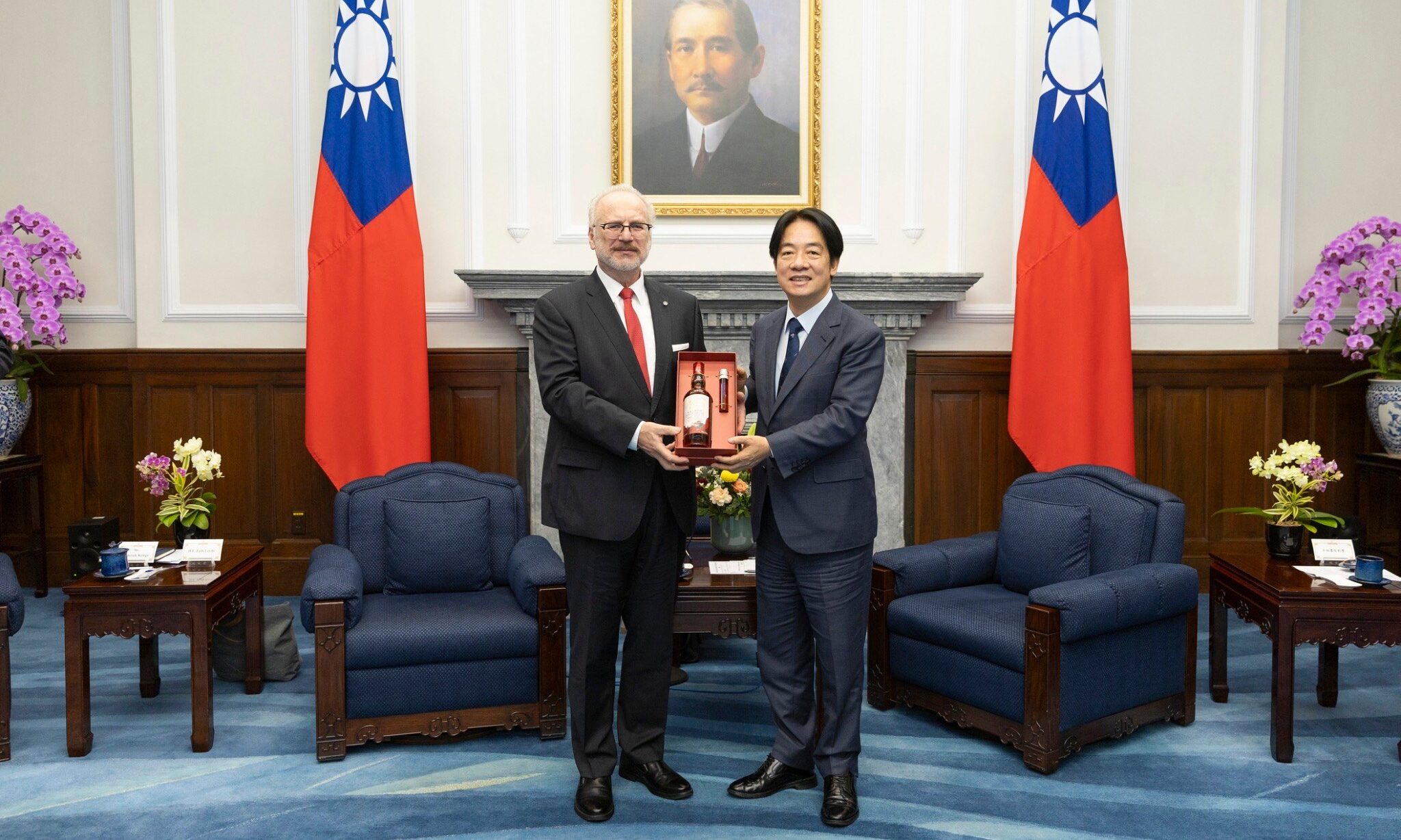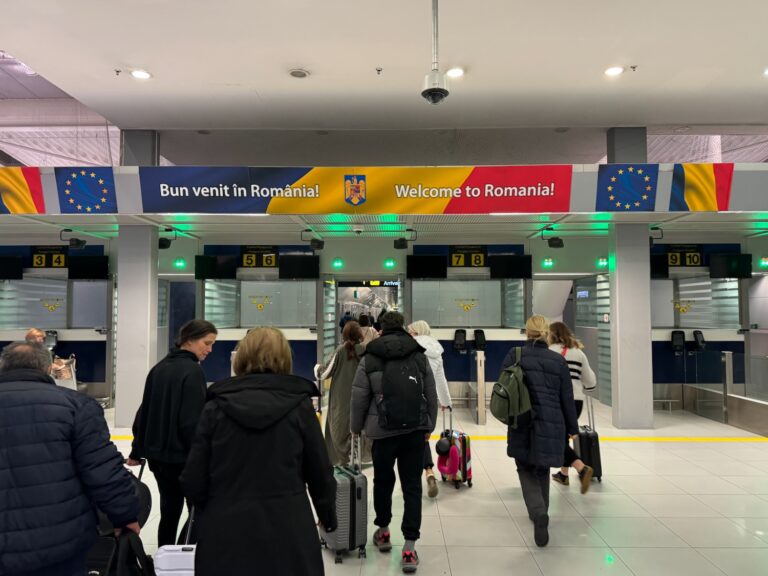
Latvia’s previous president and current Special Representative of Latvia in matters of international law and national responsibility Egils Levits visited Taiwan as a member of an Atlantic Council delegation. The visit drew little international or Baltic attention – and intentionally so – yet points towards a spike in Latvia’s interest vis-a-vis Taiwan.
The Baltic Taiwan Story: Regional Signalling, Deepening Exchanges
As “CEE has in recent years become the engine behind the growth of cooperation with Taiwan on the European continent,” the Baltic states of Estonia, Latvia and Lithuania have been gaining an image of a particularly Taiwan-friendly region for both normative and pragmatic reasons.
There is indeed a regional dimension in the Baltic cooperation with Taiwan: in August 2023, the heads of the foreign affairs committees of the Estonian, Lithuanian and Latvian parliaments Marko Mihkelson, Zygimantas Pavilionis and Rihards Kols visited Tapei, and three months later the Minister of Foreign Affairs of Taiwan (ROC), Joseph Jaushieh Wu, returned the favor with his tour the Baltics, bringing a message of shared values and common security threats.
The Baltics made a point of speaking in one voice also after the January 2024 election of Lai Ching-te in Taiwan, as Mihkelson, Kols and Pavilionis jointly stated: “We congratulate Taiwan for once again demonstrating the strength of its robust democratic system, which – coupled with a free market economy and a vibrant civil society – makes it a model for the Indo-Pacific region and a force for good in the world.”
On the first glance, thus, the Baltic Taiwan policy appears to be a consolidated bloc. In reality, however, it has been developing at different paces and with varying emphases.
Lithuania has stressed the anti-authoritarian solidarity as it opened a Taiwanese Representative office in 2021, sparking a retaliatory economic and diplomatic response from China, and ultimately jolting the EU into adopting the Anti-Coercion Instrument, “providing the EU with the means to deter and respond to economic coercion, and thereby better defend its interests and those of its Member States on the global stage.”
Estonia and Latvia have been veering close to the Brussels “One China Policy” approach, without following the Lithuanian example. Still, Estonia has been more visible than Latvia. In November 2023, the Estonian Foreign Minister, Margus Tsahkna, spoke of reinvigorating relations with Taiwan, as Estonia accepted the “establishment of a non-diplomatic economic or cultural representation of Taipei.” This move allows “Taiwan to expand its unofficial international space” – a consolation at a time when countries previously recognizing Taiwan are deciding to switch recognition to the People’s Republic of China (PRC).
The Latvian Taiwan Approach: From Low Priority to Low Visibility
Against the backdrop of Estonia and especially Lithuania in recent years, Latvia has been less visible. Even though parliamentary visits have taken place, generally, Riga’s approach to Taiwan has been more cautious that those of the Baltic neighbors. The reason for this is also a historic one: Latvia had been down this road before without tangible results.
In 1992, right after the regained independence, Latvia fully embraced diplomatic cooperation with Taiwan, opening a Taiwanese General Consulate and causing a freeze in the relations with the PRC for the next two years. Although the status of the General Consulate was ultimately lowered to that of a Taipei Representative Office as the relations with the PRC normalized, Latvia continued to host the largest de facto Taiwanese presence among the Baltics – that is, until the opening of the office in Vilnius.
In the end, the high expectations of the early nineties did not materialize, prompting Latvia to approach the Lithuanian efforts three decades later with a ‘been there, done that’ attitude. Additionally, during the first years of China’s Cooperation with Central and Eastern Europe (the “16+1” format) Latvia was investing political capital in boosting an economic relationship with the PRC, which culminated in the Riga Summit in 2016. Shortly after, disillusionment followed as the format did not bear fruit, and it was ultimately completely abandoned in 2022 amid geopolitical and national security concerns, but the first optimistic years nonetheless had put a dent in Latvia-Taiwan exchanges.
In this context, it is all the more interesting that the former President of Latvia (2019-2023), Egils Levits, just wrapped up a visit to Taiwan which included a meeting with Lai Ching-te as part of an Atlantic Council delegation, along with Council’s President and CEO, Frederick Kempe, former Czech Minister of Foreign Affairs, Tomáš Petříček, and former Director of the US Defense Intelligence Agency, Scott D. Berrier.
This is the highest-level visit of a Baltic official to date – the former Lithuanian president Dalia Grybauskaite had a meeting with President Lai Ching-te and Vice President Hsiao Bhi-khim in Taiwan in May 2024, however, she has not participated in any active political activities since the end of her presidency, remaining in the capacity of an observer and commentator.
Levits, in contrast, also holds an active position in the current government, as the current President Edgars Rinkēvičs has appointed him Special Representative of Latvia in matters of international law and national responsibility. His tasks include “to strengthen Latvia’s representation and presence in various formats, including informal ones,” evidently, such as the exchanges with Taiwan.
It is all the more striking that the visit has received very little publicity. Levits himself has not reported it on social media, even though, according to the official X account of the Taipei Mission in the Republic of Latvia, former President Levits not just participated, but in fact led the Atlantic Council delegation. The press release by the Office of the President of Republic of China (Taiwan) was published under the headline “President Lai meets Atlantic Council delegation,” with Latvia and Levits’ presence, along with that of the former Minister of Foreign Affairs Tomáš Petřiček of the Czech Republic, only mentioned further in the body of the text.
Levits structured his address around the democracy vs. autocracy motif, which is a safe and established framework in Baltic-Taiwanese dialogues – safe, because by calling Taiwan a democracy one sidesteps the discursive minefield of other denominators, such as “country,” “region,” or “island”; and established because safeguarding democracy is a natural shared normative feature of the Baltic and Taiwanese societies.
However, Levits went a step further and brought the link between safeguarding democracy at home and international security, namely, in the form of an increase in defense capabilities, as he argued that the “principle of self-defending of militant democracy should be strengthened and should be adapted to the new threats” including hybrid war, informational wars, and cognitive war. This framing goes to show that the shared normative outlooks and Latvian economic interests are now supplemented with a third, overarching topic of engagement: that of survival in the shadow of a big, authoritarian neighbor threatening military action while launching hybrid operations.
The Latvian Way
Unlike the Lithuanian approach and the Estonian debate, the big Latvian visit turned out to be a silent one – and intentionally so. Perhaps, this points towards the general approach Latvia has taken towards Taiwan: that of under-the-radar involvement. Given the think tank format of the visit, it is safe to assume that Levits took part in other – undisclosed – meetings during his stay in Taiwan, discussing the tools at the disposal of Latvia and Taiwan as self-defending democracies.
One thing is clear: as Russia’s full-scale invasion in Ukraine rages for the third year, Latvia is aware that it needs friends near and far, and especially among those facing similar challenges.
Written by
Una Aleksandra Bērziņa-Čerenkova
UCerenkovaDr. Una Aleksandra Bērziņa-Čerenkova is a Research Fellow at CHOICE and Head of the Political Science PhD programme and China Studies Centre at Riga Stradins University, Head of the Asia Programme at the Latvian Institute of International Affairs, a member of CHERN and European Think-tank Network on China (ETNC).

